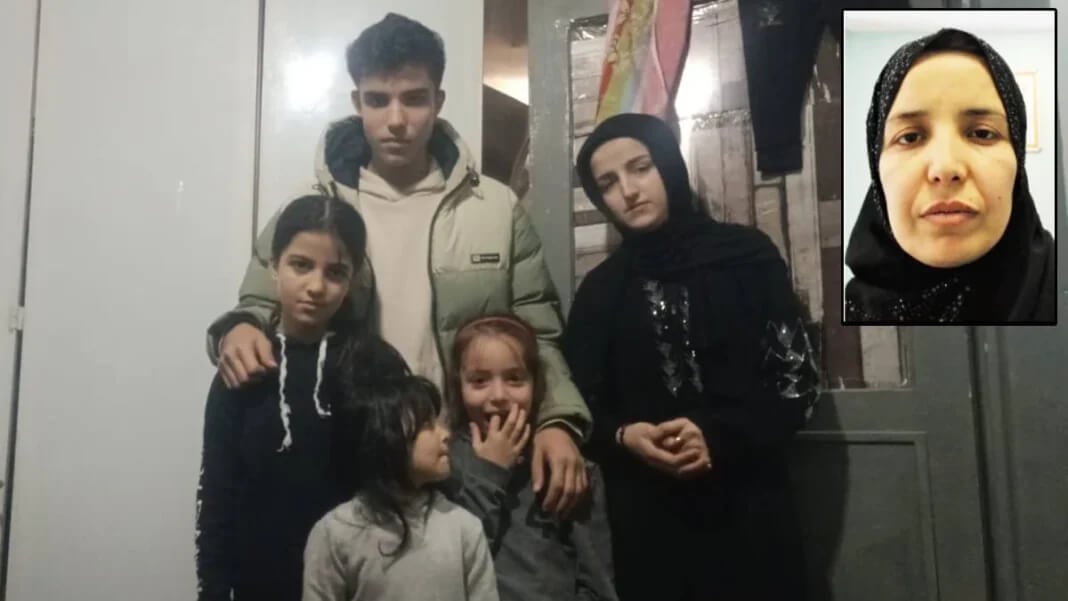Turkish authorities last week deported Fatim el Musa, a Syrian mother of five, leaving her children behind in Turkey, the Stockholm Center for Freedom reported, citing the Karar news website.
An investigation into the Syrian woman was underway due to an issue involving her children but had not yet been finalized. El Musa’s lawyer, Yağmur Karagöz, said the deportation violated Turkish and international law since el Musa’s legal case had not been concluded.
“My client was released by prosecutors yet transferred to a repatriation center simply for being a foreign national,” Karagöz said. “Deporting her during an ongoing investigation violates her right to a fair trial and the presumption of innocence.”
Under Article 59 of the Turkey’s Law on Foreigners and International Protection, migrants have the right to legal representation and judicial review before deportation. Deportations carried out without exhausting these legal options may be deemed unlawful.
El Musa, who fled Aleppo in 2014 with her husband and children, had been living in İstanbul under temporary protection status.
She was detained in late October over an issue involving her children, but prosecutors ordered her release. However, police transferred her to the immigration authorities, who sought her deportation. After six weeks at the Çatalca Repatriation Center in İstanbul, she was sent to Syria last week, her lawyer Karagöz said.
Karagöz also claimed that el Musa was coerced into signing a voluntary return form, despite having no intention of leaving Turkey.
“She was the mother of five young children, the youngest just 4 years old, and her husband was critically ill. Signing such a form voluntarily under these circumstances defies logic,” Karagöz said.
Her five children — ages 18, 16, 9, 6 and 4 — remain in Turkey without their parents. Four days after el Musa’s detention, her husband, Hussein Jassem, suffered a heart attack and was put in intensive care. He died on January 3, leaving the children orphaned.
El Musa’s eldest son, 18-year-old Usame el Musa, is now caring for his siblings while working temporary jobs.
“They separated us from our mother without warning. We only found out she had been deported after she called us from Syria,” he said. “Our home in Aleppo was destroyed, and my mother has nowhere to stay.”
He said his siblings desperately need their mother but that his caregiving responsibilities make it impossible for him to earn enough to support them.
Karagöz criticized Turkish immigration authorities for deporting migrants without informing legal representatives, effectively blocking appeals.
“This is part of a larger pattern where migrants, even those with ongoing legal cases, are sent to repatriation centers and deported without proper legal review,” she said.
Turkey has granted legal status to 3.5 million Syrian nationals who fled the civil war in Syria that began in 2011. Initially welcomed under a temporary protection policy, many Syrians settled in Turkish cities, sparking debates about integration, economic strain and cultural differences. The issue has become increasingly politicized, fueling tensions and shaping public discourse.
Amid the worsening of Turkey’s economy, right-wing segments of the Turkish opposition have been instigating anti-migrant sentiment among the public, which has led to many incidents of hate crime resulting in injury or death.
Cornered by the opposition and the unease among its own voter base, the ruling Justice and Development Party (AKP) has been compelled to announce more stringent measures as well as “voluntary return” programs. Human rights advocates have accused the authorities of coercing the migrants to sign voluntary return documents under duress.


